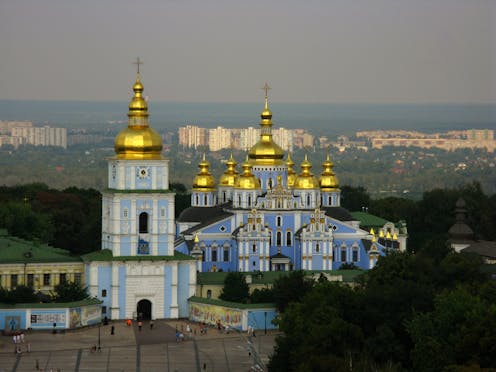5 must-read books about Russia and Ukraine: our expert picks
- Written by Mark Edele, Hansen Chair in History, The University of Melbourne
 This slim volume of just over 200 pages[1] is something of a marvel. Written by a world-leading historian of Ukraine, it introduces readers to the history, geography, economy, politics, and contemporary life of the country now suffering from Russia’s invasion.
Serhy Yekelchyk precisely defines both the commonalities and differences in the histories of Ukraine and Russia, and he also delves into the entanglements between Ukrainian and United States politics. Yekelchyk asks all the right questions and answers them succinctly and precisely.
There is no better book to start reading on the background of the current war. If you have time to read only one book on this topic, this is it.
– Mark Edele
Read more:
Ukraine as a 'borderland': a brief history of Ukraine's place between Europe and Russia[2]
2. The Red Mirror: Putin’s Leadership and Russia’s Insecure Identity by Gulnaz Sharafutdinova
This slim volume of just over 200 pages[1] is something of a marvel. Written by a world-leading historian of Ukraine, it introduces readers to the history, geography, economy, politics, and contemporary life of the country now suffering from Russia’s invasion.
Serhy Yekelchyk precisely defines both the commonalities and differences in the histories of Ukraine and Russia, and he also delves into the entanglements between Ukrainian and United States politics. Yekelchyk asks all the right questions and answers them succinctly and precisely.
There is no better book to start reading on the background of the current war. If you have time to read only one book on this topic, this is it.
– Mark Edele
Read more:
Ukraine as a 'borderland': a brief history of Ukraine's place between Europe and Russia[2]
2. The Red Mirror: Putin’s Leadership and Russia’s Insecure Identity by Gulnaz Sharafutdinova
Read more https://theconversation.com/5-must-read-books-about-russia-and-ukraine-our-expert-picks-179832
















